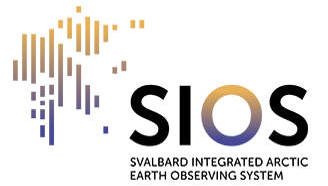Special Issue: New Advance in Ecosystem Services, Biodiversity and Environmental Sustainability (deadline 30 June 2023)

The Special Issue, New Advances in Ecosystem Services, Biodiversity, and Environmental Sustainability, will investigate the latest advances in the sustainable exploitation of different ecosystems and exploration of their potential. We are inviting scientific contributions assessing new biomolecules and the potential of bioremediation using organisms and microorganisms, as well as those evaluating their environmental impact, environmental response, and the assessment of their extent and limits.
Submission Deadlines 30 June 2023.
Special Issue Editors: Maria Papale, Angelina Lo Giudice (CNR-ISP)
Science Sessions for Arctic Frontiers 2023 Announced
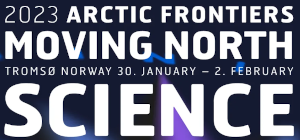 At Arctic Frontiers 2023 Moving North, there will be seven science themes, covering a wide range of topics in physical and social sciences.
At Arctic Frontiers 2023 Moving North, there will be seven science themes, covering a wide range of topics in physical and social sciences.
The call-for-abstracts is now open. New deadline: September 26th 2022
XXI INQUA 2023 - Roma 7-13 July 2023
Understanding the past climate variability and sensitivity from glacial archives is fundamental for placing the current changes in a longer-term context. The scientific ice core community is currently putting an enormous effort towards retrieving the oldest continuous ice core from Antarctica (Project Beyond EPICA) and training a new generation of ice core scientists capable of analyzing, interpreting, and modelling the new records that will be obtained (ITN DEEPICE project).
• Session INQUA-MARE: Pole to pole teleconnections as registered in Antarctic and Arctic Holocene Archives
With the expression “pole to pole teleconnections” we refer to climate anomalies in the Arctic region, caused by oceanic or atmospheric processes originating in the Antarctic region and vice versa. These anomalies are well recognized in today’s climate but are detected with difficulties in the paleoclimate archives. Within the frame of the CMP-Coastal & Marine Processes (Coastal and Marine Processes) Commission and of the SPLOSH (Submerged Palaeolandscapes of the Southern Hemisphere) International Focus Group, the “INQUA MARE” scientific action (INtegrated QUAternary MArine REcord at Sensitive Latitudes, 2020-2024) aims to exhaustively explore the interactions between the tropical and polar regions by studying the Holocene marine sediment records from Arctic, Antarctic and Tropical regions, considered as the most sensitive areas to climate change. With this session, we would like to “recap” the first two INQUA-MARE workshops focused on the Antarctic and on the Arctic realms respectively, to open the discussion also to the terrestrial environment, and to promote next INQUA-MARE workshop that will focus on tropical areas and worldwide teleconnections between high and low latitude regions. We therefore welcome contributions that explore (and possibly compare) Holocene marine and terrestrial records from the Antarctic and Arctic regions highlighting anomalies ascribable to the climate fluctuations regime on the opposite Pole.
Copernicus for Polar Regions - 19 - 20 September 2022 - online
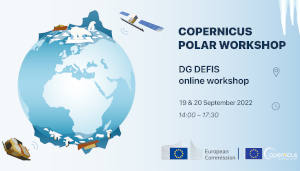 This workshop will present how Copernicus supports EU’s policy actions by contributing to the monitoring of the Polar Regions. The workshop aims to address Polar resilience, the changing Arctic economy and not least the changing climate at both poles, and how Copernicus can support monitoring these key aspects and facilitate interactions and discussions between different stakeholders.
This workshop will present how Copernicus supports EU’s policy actions by contributing to the monitoring of the Polar Regions. The workshop aims to address Polar resilience, the changing Arctic economy and not least the changing climate at both poles, and how Copernicus can support monitoring these key aspects and facilitate interactions and discussions between different stakeholders.
Call for Papers - Evolution of East Antarctic Landscape, Cryosphere and Climate during Quaternary
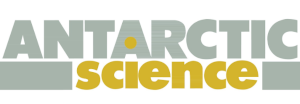 Call for Papers - Evolution of East Antarctic Landscape, Cryosphere and Climate during Quaternary. This special issue propose to provide a state-of-the-art perspective on the geological-geomorphological-cryosphere-climate variability in East Antarctica, with an objective to summarise and synthesize the current scientific knowledge. More informations.
Call for Papers - Evolution of East Antarctic Landscape, Cryosphere and Climate during Quaternary. This special issue propose to provide a state-of-the-art perspective on the geological-geomorphological-cryosphere-climate variability in East Antarctica, with an objective to summarise and synthesize the current scientific knowledge. More informations.
Deadline title: 15 August 2022 - Deadline manuscript submission: 15 October 2022
Special Issue: Persistent and Emerging Organic Contaminants in Natural Environments (deadline 31 January 2023)
A special issue of Water (ISSN 2073-4441). This special issue belongs to the section "Soil and Water".
The Special Issue aims to investigate and understand the sources, fate, transport, and effects of persistent and emerging organic contaminants on natural ecosystems. These contaminants are spread in all environmental compartments at middle and high latitudes due to their worldwide production and consumption related to anthropogenic activities. Most of these organic micropollutants cause adverse effects on organisms at different levels of the trophic web. In this scenario, the investigation of the potential effects and toxicity associated with their occurrence in abiotic and biotic natural compartments can not be negligible. This Special Issue will update the state-of-the-art and partially fill the knowledge gap regarding these contaminants.
Submission Deadlines 31 January 2023.
Special Issue Editors: Jasmin Rauseo (CNR-ISP), Francesca Spataro (CNR-ISP) and Luisa Patrolecco (CNR-ISP)
SIOS Online Conference on Remote Sensing, 12-14 October 2022
The aim of the online conference is to promote the work of PhD students, postdocs, researchers, senior scientists, and academics who are actively contributing to the science of Svalbard, to review the state-of-the-art Earth Observation and Remote Sensing applications in Svalbard and to provide a social experience to the Svalbard scientific community.
Seminario: Sciagure o soluzioni? Due decadi di comunicazione delle aree polari
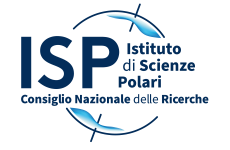 13 Luglio 2022
13 Luglio 2022
Jacopo Pasotti (Giornalista e comunicatore scientifico): Sciagure o soluzioni? Due decadi di comunicazione delle aree polari - Locandina
Breve Descrizione: Il successo della comunicazione di uno studio, o di un progetto, dipendono in gran parte dalla scelta narrativa con cui si imposta la comunicazione stessa. Gli ambienti polari e montani, si prestano a molte narrazioni e possono raggiungere diversi pubblici a seconda di come vengono raccontati. In questo breve seminario esploreremo alcune narrazioni e la scelta dell'angolo narrativo con cui impostare una comunicazione.
Seminario: Organic Compounds in Ice Cores
 7 Luglio 2022
7 Luglio 2022
Hanne Notø (PhDs, DEEPICE PhD Student at Utrecht University):
ORGANIC COMPOUNDS IN ICE CORES - Locandina - Registrazione video
Breve Descrizione: In recent years there has been an increasing interest in studying the importance of organic compounds in ice cores, which can serve as unique tracers of biomass burning, marine organisms, and volcanic eruptions. However, there are analytical challenges associated with their analysis, the two main ones being contamination and their low concentrations. In this webinar, I will be presenting my PhD project, which aims to develop a method to use PTR-MS, used for the analysis of organic trace gases in the atmosphere, for a continuous flow analysis of the organic compounds in ice cores.
The 27th International Symposium on Polar Sciences - September 20-21, 2022 Online
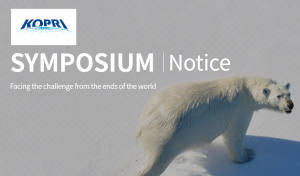 The 27th International Symposium on Polar Sciences - Two decades of Korean Arctic research: Looking back to look forward
The 27th International Symposium on Polar Sciences - Two decades of Korean Arctic research: Looking back to look forward
The 27th International Symposium on Polar Sciences organized by Korea Polar Research Institute (KOPRI) will be held online on September 20-21, 2022. This symposium aims to bring polar scientists together to discuss their research findings and promote international collaborative research. Official Site
 Ministero dell'Universita e Ricerca
Ministero dell'Universita e Ricerca
Programma Ricerche Artico
Programma Nazionale di Ricerca in Antartide
 Ministero degli Affari Esteri e della Cooperazione Internazionale
Ministero degli Affari Esteri e della Cooperazione Internazionale
L'Italia e l’Artico
L’Italia e l’Antartide
CNR-ISP
Consiglio Nazionale delle Ricerche
Istituto di Scienze Polari
c/o Campus Scientifico - Università Ca' Foscari Venezia - Via Torino, 155 - 30172 VENEZIA MESTRE (VE)
Salvo diversa indicazione, il contenuto di questo sito è concesso in licenza : Attribuzione - Non commerciale - Condividi allo stesso modo 4.0 Internazionale (CC BY-NC-SA 4.0) 
Privacy policy e Cookie policy - Amministrazione trasparente CNR







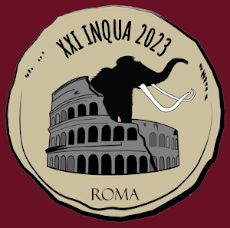 •
• 
